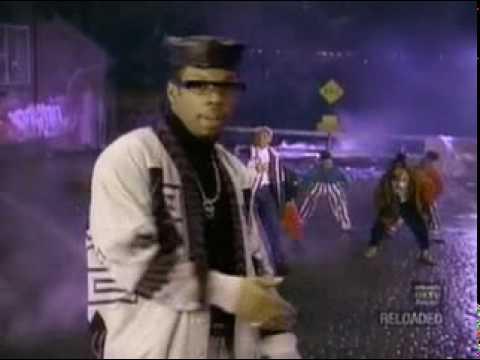In 2013 I wrote a couple of blurbs that I'm still proud of for Spin's "Top 100 Alternative Albums of the 1960s": The Moray Eels Eat The Holy Modal Rounders and The Velvet Underground & Nico. Linked them on my LJ at the time, w/ my critique and commentary, lotsa critique – criticized the cake and ate it too! – here: "Concrete toes and pigeons' feet."
Since then, as far as I can tell, my two blurbs and the 98 others, and the list itself, have disappeared from the Spin site.* Fortunately, I'd downloaded my blurbs and the entire list, though none of the other blurbs. This March when repairing old posts I added my blurbs to the post as an update, and stuck the list in the comments. Reposting here, now, too.
"Mobile Line"
"Heroin"
( Spin's Top 100 Alternative Albums of the 1960s )
*Wrote Spin via their Web email asking if there was a way to access the blurbs or if they were all gone. Heard nada.
**[EDIT EDIT EDIT:![[profile]](https://www.dreamwidth.org/img/silk/identity/user.png) skyecaptain has found all the blurbs in the Internet Archive's Wayback Machine. He says to apply this URL format but in reverse numerical order; so Oliver Wang's blurb for Marshall McLuhan's The Medium Is The Massage, which is number 100 on the Spin list but is their first slide, is here:
skyecaptain has found all the blurbs in the Internet Archive's Wayback Machine. He says to apply this URL format but in reverse numerical order; so Oliver Wang's blurb for Marshall McLuhan's The Medium Is The Massage, which is number 100 on the Spin list but is their first slide, is here:
https://web.archive.org/web/20150310090636/http://spin.com/articles/best-100-albums-1960s-sixties-alternative-list/?slide=1
And Mike Powell's blurb for The Incredible String Band's Hangman's Beautiful Daughter (no. 53) is here:
https://web.archive.org/web/20150310090636/http://spin.com/articles/best-100-albums-1960s-sixties-alternative-list/?slide=48
So my two blurbs are here:
https://web.archive.org/web/20150310090636/http://spin.com/articles/best-100-albums-1960s-sixties-alternative-list/?slide=64
https://web.archive.org/web/20130401055230/http://www.spin.com/articles/best-100-albums-1960s-sixties-alternative-list?slide=98
(I know, the bottom one is a different URL at the start, not sure why. Wayback Machine is cranky, I guess. I don't really get it, but once you're into one of these blurbs, you can probably find your way to the rest.) END OF EDIT]
Since then, as far as I can tell, my two blurbs and the 98 others, and the list itself, have disappeared from the Spin site.* Fortunately, I'd downloaded my blurbs and the entire list, though none of the other blurbs. This March when repairing old posts I added my blurbs to the post as an update, and stuck the list in the comments. Reposting here, now, too.
"Mobile Line"
#37
The Holy Modal Rounders – The Moray Eels Eat the Holy Modal Rounders (Elektra, 1968)
Part of New York City's urban folk bohemia, the Rounders heard in rockabilly and old rural string bands a vision of new music. On this, their fourth album, the styles were still mostly from the rural south of the 1920s, with added garage blues and scraps and bits from rags and barrelhouse and the American songbook (such as the melody but not the words to "Three cheers for the red, white, and blue"). But each instrument played its own accents and unique curlicues, not in direct support of the main melody or the singer (whose mic is always set to "soft"). Imagine a number of people wandering into a room and simultaneously telling their individually varied stories, while never losing touch with what the others are saying. The effect isn't dreamy or diffuse but slightly crazed, as everyone seems to be listening to notes just out of earshot, and every sound can potentially drive the wagon off various cliffs in any direction. FRANK KOGAN
#3
The Velvet Underground & Nico – The Velvet Underground & Nico (Verve, 1967)
It's a convention of drug songs as much as love songs that if you say you don't care, you do care. But a line like, "When the smack begins to flow and I really don't care anymore" does glorify self-destruction, as a rebuke to senators and society, to niceness and complacency. Choose to choose, choose to go. While Simon & Garfunkel hit big with similarly death-obsessed lyrics, the Velvets brought the conversation to eye level, skillfully precise ("up three flights of stairs," "twenty-six dollars in my hand"). The music matches, feels as sick and dirty as the protagonists. But the drones and unison pounding are a frame for cascades of notes and syllables that are as virtuoso as Diddley and doo-wop without announcing themselves as such. So the whole thing's got a lilt and a dance, solace for the broken people. F.K.
"Heroin"
( Spin's Top 100 Alternative Albums of the 1960s )
*Wrote Spin via their Web email asking if there was a way to access the blurbs or if they were all gone. Heard nada.
**[EDIT EDIT EDIT:
https://web.archive.org/web/20150310090636/http://spin.com/articles/best-100-albums-1960s-sixties-alternative-list/?slide=1
And Mike Powell's blurb for The Incredible String Band's Hangman's Beautiful Daughter (no. 53) is here:
https://web.archive.org/web/20150310090636/http://spin.com/articles/best-100-albums-1960s-sixties-alternative-list/?slide=48
So my two blurbs are here:
https://web.archive.org/web/20150310090636/http://spin.com/articles/best-100-albums-1960s-sixties-alternative-list/?slide=64
https://web.archive.org/web/20130401055230/http://www.spin.com/articles/best-100-albums-1960s-sixties-alternative-list?slide=98
(I know, the bottom one is a different URL at the start, not sure why. Wayback Machine is cranky, I guess. I don't really get it, but once you're into one of these blurbs, you can probably find your way to the rest.) END OF EDIT]
CROSSPOSTS: HTTPS://KOGANBOT.LIVEJOURNAL.COM/386065.HTML

